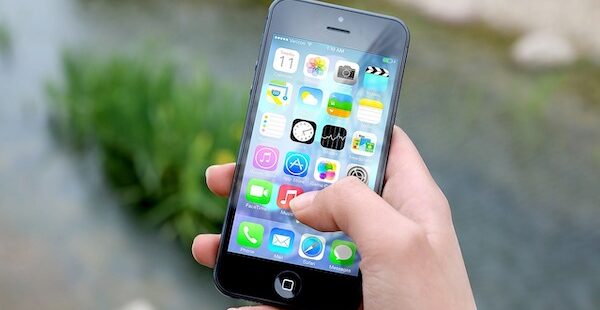
Monotasking and Your Phone
Introductory Explanation
This year I was excited to read a book. Just the title of the book itself was enough to get me thinking. “The Twelve Monotasks: Do One Thing at a Time to Do Everything Better.” Such a book has got to be packed with insights.
When I finally got around to reading the book, I was somewhat disappointed that it didn’t deliver more substance. It did contain some helpful ideas, but the best part of the book was that it got me thinking about this topic. How do I do just one thing at a time so that I can do everything better?
I started to jot down thoughts and collect ideas. While Thatcher Wine came up with twelve monotasks, I found only four truly significant ‘monotasks.’ Thinking about this topic from a Christian perspective, the ‘monotasks’ that I discovered are somewhat different from his: worshipping, studying, conversing, recreating. I hope to write a post on each of these monotasks, including specific, actionable ways to focus on each one. But before I can offer any thoughts about these tasks, I must deal with the single greatest challenge.
Monotasking and Your Phone
It’s impossible to consistently focus on anything until you address the most common, most challenging barrier to monotasking: the phone. Recognizing this, I started to think very seriously about ways to deal with this addictive yet invaluable piece of technology. I collected ideas and brainstormed strategies. I can’t get it out of my life, but it has also done more to ruin monotasking than any other piece of technology.
In fact, here’s a crude-but-useful question to determine if something is a ‘monotask,’ something that deserves your full, undivided attention: “is it acceptable to do this task while I have my phone out?” If the answer is yes, then what you are doing is not a monotask. If the answer is no, then you are probably dealing with a monotask.
The problem with phones is not just the distraction they provide; it’s the potential distraction that comes with them. Thatcher Wine points this out in his book: “A study in the Journal for the Association of Consumer Research concluded that you don’t even have to be using your phone for it to negatively affect your capabilities: ‘the mere presence of these devices reduces available cognitive capacity’” (p. 34).
My point, however, is not to go through all the dangers of digital devices. I’ve already written about this, and there is an abundance of research that you can easily find. Nor do I want to write about the philosophy behind digital devices. You can find a great Christian perspective by reading “12 Ways Your Phone is Changing You”. You can read a detailed and very helpful mindset toward this technology in “Digital Minimalism.” Instead, recognizing that phones kill monotasks, here are some key tactics to help you put your phone away.
Lock your phone. By forcing yourself to put a code in each time that you open your phone, looking at your phone becomes more difficult – and therefore mindful.
Set the color to monochrome. Phones are designed to be addictive. By changing the color to monochrome, the whole experience of being on your phone is less intense (and therefore less addictive). You can easily do this in your settings (for iPhones, look under ‘accessibility’).
Consider a dumb phone. Not everyone can do this. It’s unfeasible for me, since I frequently need many of the apps that are found on my phone, for useful purposes. If you can get by with a dumb phone, it’s a worthwhile decision.
Turn off most notifications. Get rid of most of the dings, banners, and red bubbles that grab your attention. You can do this in your settings. However, beware: don’t turn all your notifications off. I once turned off notifications for text messages, and found myself compulsively checking my phone from fear that I had missed an important text message.
Scramble your apps. I’ve only just started this, but I’m told that it’s helpful. By moving them around, putting them in folders, and otherwise making them difficult to find, you using your phone will be harder – and therefore more mindful. (The psychology behind this trick, as well as locking your phone, is that your phone offers an opportunity to turn your brain off. It’s an escape from thinking. Force your brain to think when using your phone, and you destroy that ‘escape from reality’ addiction).
Remove social media apps. Even if you aren’t ready to quit Facebook and Instagram, at the least you must remove them from your phone. You are doomed to failure if you have that ability to scroll limitlessly.
Get a physical alarm clock. You can easily purchase a physical alarm clock for a few dollars from online or Walmart. Put your phone in a drawer or another room when you go to bed, and use the alarm clock, rather than your phone, to wake up. This prevents you from looking at your phone first thing in the morning.
Set your phone to silent. You should already do this whenever you are sleeping or in meetings, but do this at other times as well – any time that you want to do ‘deep work’ or a monotask. Get used to putting your phone in ‘silent’ mode’ for long stretches of the day. For example, set your phone to silent for 4-hour blocks, between 8-12 or 1-5, in order to devote yourself to a particular task.
Turn your phone off. Silent mode is okay, but turning your phone off is great. It makes it harder to access, and prevents you from ‘just checking’ it.
Leave your phone behind. Even better than setting your phone to silent or turning it off, put your phone in a place where you won’t access it. If you are going on a walk, leave it at home. If you are used to having your phone with you and feel like you are ‘missing something’ when you don’t have it, put a small block of wood in your pocket, approximately the same size as your phone. Of course, there are legitimate times that you probably should have your phone with you. This isn’t a ‘continual’ strategy, but it is something that you should normalize.
Charge your phone in another room. Keep your phone charger in a room that you don’t normally visit. This means that you won’t be continually checking your phone when it is charging.
Put your phone away in the evening. A good tip is to set an alarm on your phone, maybe for 8 PM, and put the phone away at that time. If you really want to get fancy (and have a whole family with phones), you could always get this phone bed so that your phones can literally ‘go to bed’!
Normalize life without your phone. Reprogram your mind to think of your phone as a tool that you only need occasionally. Get used to not carrying your phone. Train yourself to view it as unique to have your phone close by all the time.
Only answer calls you know. If you don’t know the number, don’t answer. They can always leave a message. This cuts down on spam calls, and also gives you freedom to not answer your phone as much.
Treat texts like email. There are times when I respond quickly to texts, but I never feel obligated to respond quickly. If you feel that you need to respond to a text within a short time, you have bought into the trap. The perceived need to respond is part of why your phone is so addictive. If it’s truly an emergency, and you don’t see the text, you can be sure that you will receive a call. Free yourself from this sense of obligation. I am famously slow at responding to texts (sometimes) and while I sometimes apologize, I don’t feel that it’s actually a serious problem. Far better than being tied to my phone. Personally, I treat texts like emails. If it is in the ‘inbox’ I need to respond at some point; once the conversation is over, I delete the thread.
Normalize slower responses. This is a mindset more than a tactic. Don’t give people the impression that you are always accessible, 24/7. Almost always, it’s okay to respond a few hours later, or maybe even the next day. I’m not suggesting that you be intentionally frustrating, but don’t live your life at the frenetic pace that our phones recommend.
In place of comments, I would love to hear from you personally. Please reach out to me via the Contact Page to share your thoughts and perspectives on this post!
Enjoying this content? Subscribe to receive it directly in your email, once a week.





